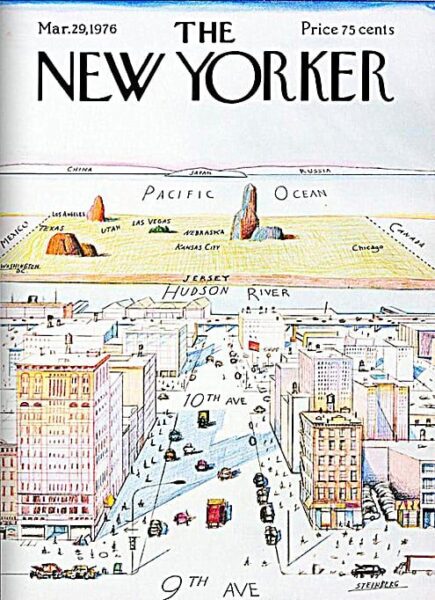Sarah Hoyt on the common problem Americans (and to a lesser extent, Canadians) have in trying to understand other nations even if they’ve done some international travel:
I also see every country, regardless of their history making the assumption that the modus operandi and motives of other cultures and organizations is exactly the same as theirs. I’ve now mentioned about a million times the idiots who went over as Human Shields to Iraq because “they can’t even provide drinking water for their people, how would they have missiles” thereby completely missing the fact that other countries — dictatorships at that — have different priorities than say the US or England, even. In the same way, Portugal assumes that every country is as fraught as corruption as they are. Which works fine for other Latin countries, but fails them when it comes to other places, because as corrupt as we are … yeah. It’s nowhere near there yet. Russia assumes everyone moves, breathes and thinks only about them, and that everyone’s intention is to threaten them or conquer them, because they are obsessed with their dreams of national glory, and they think they should rule the world. And the US by and large goes around like a large vaguely autistic child who really, really, really doesn’t understand how different it is from other nations, or if it does assumes it’s worse.
Look, it’s part of the reason our intelligence services are so sucky. To completely understand what other countries are doing and why, you have to know they have very different cultures. They’re not you. Most countries can sort of extrapolate other countries, but America is so different we suck at it. This is why we tend to think places like the USSR (Russia’s party mask) were totes super powers. Because for America to do and say the things they did and said, we’d have to be very sure of our power. But other countries aren’t America. So we go through the world acting like gullible giants.
In fact Americans have one of the weirder cultures in the world. It’s just not in your face weird as China (whose history reads like they should be extra-terrestrials.) It’s subtle and more in the mental furniture.
Because of this, and because we’re a continent-sized nation, born and bred Americans (as opposed to imports like me) read not just the rest of the world but history hilariously wrong. (The history part is because at least when I went through school here — one year — American schools suck at teaching history. It’s all names and dates, not “Why did France do that?” Yeah, probably not worse than the rest of the world, now that all the books have just-so Marxist explanations, but still stupid.)
I had friends in my writers’ group back when who were writing, say, ancient Egyptian families and couldn’t understand in most of them the teens wouldn’t be/act the same as American teens now. Heck, my dad’s generation in Portugal, less than 100 years ago weren’t “teens” really. Their equivalent was under ten. Because by 12 most of the boys in the village were apprenticed in the job they’d have for life. (And dad was in school, yes, but it was way tougher than even I had.) They didn’t have time. And even I — and you guys know my basic disposition — didn’t sass my parents as American teens do, because there was a deep “fund” of “respect the elders” in the culture. I still have trouble calling people older than I — even colleagues — by their first name.
And then there’s the hilarious — or sad — misunderstandings like the Human Shields mentioned above. It’s sad, because they will buy other countries at face value, but are willing to entertain their own country might be evil. Which is why we have a large contingent of open-mouth guppies who think that the US invented slavery. Even though places around the world still have slavery. Including China, where everyone is a slave, it’s the degree that varies, of course.
The problem is made worse — not better — by idiotic travel abroad.
To understand the differences in a country, you need to live with them, as one of them, for a while. You need to speak the language well enough you understand overheard conversations. Etc.
My experience coming over as an exchange student for 12th grade was about ideal. I lived with an American family, as one of their kids, and attended a school nowhere USA (okay, a suburb of Akron, Ohio) and yeah, I had slight celebrity status in the school — being one of three foreign exchange students — but not that much. So I got to experience the normal life of normal people in normal circumstances, which was an eye-opener.
I always wanted my kids to follow me in this experience, but you know, things got complicated around the time they were of age to do it. So they didn’t. They still have experienced life as an every day foreigner when we visit my parents. In fact the issue there is that they never get past the irritation “What do you mean we can’t do that” and towards “oh, it’s just different. Still sucky, but different.”
Going over for two weeks, with or without the guided tour, staying in nice hotels and associating only with people at your social level and not past the level of polite interaction does not enlarge the mind. Instead, it gives a false sense of knowing what the world is like. This is where we get the “socialists” who know it’s good, because look at all the magnificent buildings in Europe, and the fact everyone has time to sit in the coffee shop and socialize with friends. And look at all the amazing public transportation. And and and. If you lived there, or knew history, you’d know most of the buildings created by socialists in the 20th and 21st century are already crumbling. (Some start before being finished.) You’d know people sit around in coffee shops either because they are unemployed, they pretend to work and their boss pretends to pay them, or all of the above. And all of it is paid for in a significant reduction in lifestyle and just the general comfort of life. (Take it from me. Their lifestyle is two social economic levels down from us, for the same relative “income level.” So, you know, upper class is middle-middle class here.) And you’d know the frustration of waiting for the bus on a rainy, windy day, getting soaked, but the bus is late because all the bus drivers went out for a pint together. And suddenly there’s five of them in a row, but you’re already soaked and starting to cough. More importantly you’d know the public transport only works because everyone works in the city and lives in crowded suburbs, in stack-a-prole apartments, while the countryside is relatively empty. And the people who live there need to buy gas at ridiculous prices, so they can barely afford it.






